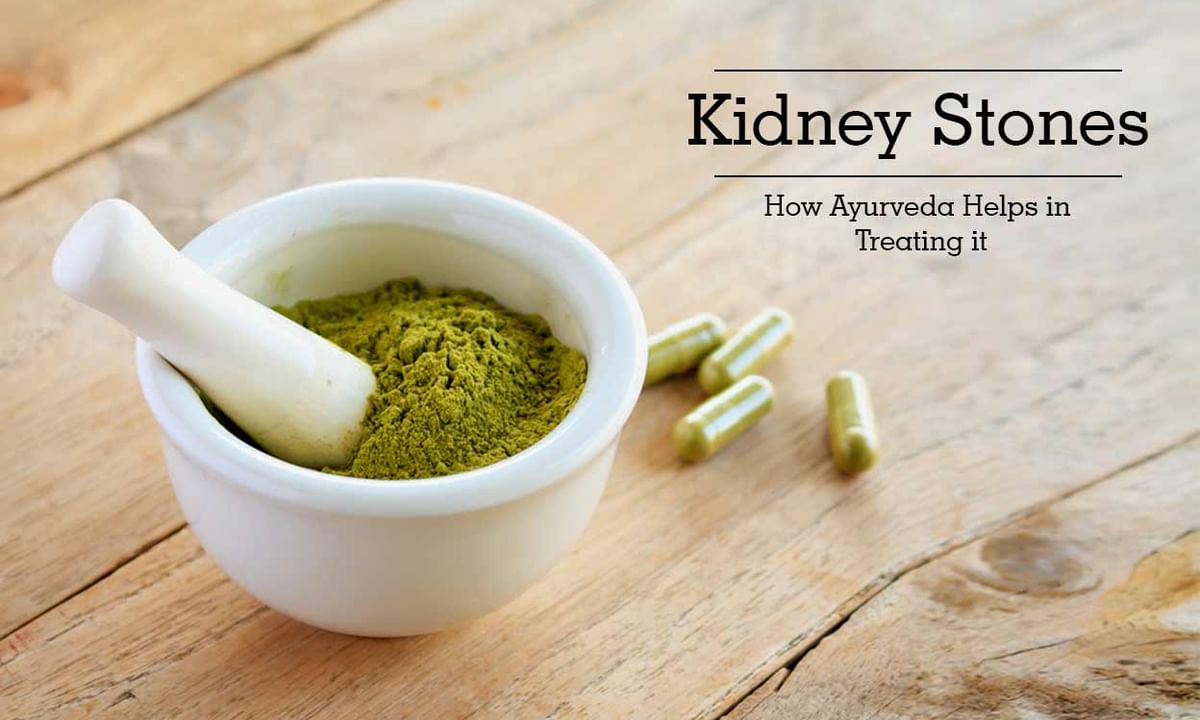Introduction to Kidney Stones and Herbal Treatments
Kidney stones are hard, crystalline mineral deposits that form in the kidneys. They develop when the urine becomes supersaturated with substances like calcium, oxalate, uric acid, or struvite. This supersaturation can occur due to various factors including dehydration, diet, certain medical conditions, and genetics. The size of kidney stones can range from tiny grains of sand to stones large enough to cause significant pain and blockage.
While herbal remedies have been traditionally used to address kidney stones and support kidney health, it’s crucial to understand their limitations. Herbal treatments should not be considered a standalone solution for kidney stones, especially larger or symptomatic ones. Relying solely on herbal remedies can delay appropriate medical intervention, potentially leading to complications such as infections, kidney damage, or even kidney failure. Always consult a healthcare professional for diagnosis and treatment of kidney stones.
Kidney Stone Types
Kidney stones are classified based on their chemical composition, which significantly influences their formation, treatment, and recurrence risk. The four main types are: calcium stones (the most common, often calcium oxalate), uric acid stones (associated with high purine diets and low urine pH), struvite stones (frequently linked to urinary tract infections), and cystine stones (a rarer type associated with a genetic disorder). Understanding the specific type of stone is crucial for developing an effective management strategy, including dietary modifications and medical treatments. For example, individuals with calcium oxalate stones may benefit from reducing oxalate-rich foods in their diet, while those with uric acid stones may need to adjust their purine intake and potentially alkalinize their urine.
Potential Risks and Side Effects

While herbal remedies offer a potential alternative approach to managing kidney stones, it’s crucial to understand that they are not without potential risks and side effects. The effectiveness and safety of these remedies can vary greatly depending on the specific herb, the individual’s health status, and the method of preparation and dosage. It is imperative to approach herbal treatments with caution and under the guidance of a healthcare professional.
It’s important to remember that the Food and Drug Administration (FDA) does not regulate herbal supplements in the same way it regulates pharmaceuticals. This means that the quality, purity, and potency of herbal products can vary significantly between brands and manufacturers. Therefore, choosing reputable brands and consulting a healthcare provider are essential steps to minimize potential harm.
Potential Side Effects of Herbal Remedies for Kidney Stones, Most effective herbal treatments for kidney stones
The side effects of herbal remedies for kidney stones can range from mild to severe and depend on the specific herb used. Some commonly used herbs and their potential side effects are listed below. This list is not exhaustive, and other side effects may occur. Always consult a healthcare professional before using any herbal remedy.
- Chanca Piedra: While generally considered safe, some individuals may experience gastrointestinal upset, such as diarrhea or nausea. In rare cases, allergic reactions may occur.
- Uva Ursi: This herb can cause nausea, vomiting, and diarrhea. It can also irritate the kidneys and urinary tract if used excessively or for prolonged periods. It should be avoided during pregnancy and breastfeeding.
- Hydrangea: Similar to Uva Ursi, Hydrangea can cause gastrointestinal upset. It also has the potential to interact with certain medications, so it is crucial to inform your doctor about all medications and supplements you are taking.
- Horsetail: Excessive consumption of horsetail can lead to digestive issues and may interfere with the absorption of certain medications. It should be avoided by people with kidney problems or those taking diuretics.
Risks of Using Herbal Remedies Without Proper Medical Supervision
Using herbal remedies without proper medical supervision presents several significant risks:
- Adverse Drug Interactions: Herbal remedies can interact with prescription medications, leading to unexpected and potentially harmful side effects. For example, some herbs can increase or decrease the effectiveness of blood thinners or other medications.
- Delayed or Inadequate Treatment: Relying solely on herbal remedies may delay or prevent the individual from seeking appropriate medical care for their kidney stones. This delay could lead to complications such as infection, kidney damage, or obstruction of the urinary tract.
- Lack of Quality Control: The lack of regulation for herbal supplements means that the quality, purity, and potency of the product can vary widely. This makes it difficult to determine the appropriate dosage and increases the risk of adverse effects.
- Misdiagnosis and Worsening Condition: Self-treating with herbal remedies can mask the symptoms of a more serious underlying medical condition, leading to a delay in diagnosis and treatment. This is particularly relevant in the case of kidney stones, where prompt medical attention is often crucial.
- Allergic Reactions: Individuals may experience allergic reactions to certain herbs, ranging from mild skin rashes to severe anaphylaxis. This is why it’s crucial to start with a small dose and monitor for any adverse reactions.
Dietary and Lifestyle Recommendations

Maintaining a healthy diet and lifestyle is crucial for preventing kidney stone formation and supporting overall kidney health. Dietary changes and lifestyle modifications can significantly reduce your risk of developing kidney stones or experiencing recurrent episodes. Proper hydration plays a vital role, and understanding the connection between lifestyle choices and kidney stone development is key to effective management.
Dietary Changes to Support Kidney Health
Making specific dietary changes can help prevent kidney stone formation. Reducing your intake of certain substances and increasing others can significantly impact your risk. The following dietary adjustments are recommended:
- Reduce Sodium Intake: High sodium diets increase calcium excretion in the urine, potentially leading to stone formation. Aim for a low-sodium diet, limiting processed foods, fast food, and excessive salt use.
- Limit Animal Protein: Excessive consumption of animal protein increases uric acid levels, a factor in uric acid stone formation. Choose lean protein sources and moderate your intake.
- Control Oxalate Intake: Oxalate is a naturally occurring substance found in many foods that can contribute to calcium oxalate stones, the most common type. While complete avoidance isn’t necessary, moderate consumption of high-oxalate foods like spinach, rhubarb, and chocolate is advisable.
- Increase Citrate Intake: Citrate inhibits stone formation. Good sources include lemons, limes, and oranges. These fruits can help prevent calcium stones.
- Maintain Adequate Calcium Intake: While paradoxial, adequate calcium intake from dietary sources, not supplements, can actually help prevent kidney stones by binding to oxalate in the digestive tract, reducing oxalate absorption.
The Importance of Hydration in Kidney Stone Prevention and Treatment
Adequate hydration is paramount in preventing and managing kidney stones. Drinking plenty of fluids, particularly water, helps dilute urine, preventing the concentration of stone-forming substances. The goal is to produce a larger volume of more dilute urine, flushing out potential stone-forming minerals before they can crystallize. The recommended daily fluid intake varies depending on individual factors like climate and activity level, but aiming for at least 2-3 liters of water per day is generally recommended. This increased fluid intake promotes the excretion of stone-forming substances through the urinary tract, reducing the risk of stone formation.
Lifestyle Factors and Kidney Stone Development
Several lifestyle factors are linked to an increased risk of kidney stone formation. Understanding and modifying these factors can be beneficial in preventing kidney stones.
- Weight Management: Obesity is associated with an increased risk of kidney stones. Maintaining a healthy weight through diet and exercise can help reduce this risk.
- Regular Physical Activity: Regular exercise promotes overall health and can contribute to weight management, indirectly reducing kidney stone risk.
- Avoid Dehydration: Dehydration concentrates urine, increasing the risk of stone formation. This is particularly important during hot weather or intense physical activity.
- Control Underlying Medical Conditions: Certain medical conditions, such as hyperparathyroidism and gout, can increase the risk of kidney stones. Managing these conditions effectively is crucial.
When to Seek Professional Medical Attention: Most Effective Herbal Treatments For Kidney Stones

Kidney stones, while often manageable with home remedies and lifestyle changes, can sometimes necessitate immediate medical intervention. Understanding when to seek professional help is crucial for preventing complications and ensuring optimal health. Delaying treatment can lead to serious health consequences, so it’s vital to recognize the warning signs.
Prompt medical attention is crucial for managing severe kidney stone episodes, preventing potential complications like infection or kidney damage. The severity of symptoms and the individual’s overall health will determine the urgency of treatment. While some stones pass naturally, others require medical intervention for safe and effective removal.
Severe Pain
Intense, debilitating pain, often described as one of the worst pains a person can experience, is a primary indicator requiring immediate medical attention. This pain typically radiates from the flank (side and back) to the groin, and can be accompanied by nausea and vomiting. The pain may be constant or come in waves, and may not be relieved by over-the-counter pain medications. For example, a patient experiencing pain so severe they are unable to find a comfortable position or are unable to function normally needs immediate medical evaluation.
Signs of Infection
Kidney stones can cause urinary tract infections (UTIs). Symptoms of infection include fever, chills, persistent nausea and vomiting, cloudy or foul-smelling urine, and a burning sensation during urination. These symptoms, especially when accompanied by severe pain, necessitate immediate medical attention to prevent serious complications such as sepsis. A patient experiencing a high fever (over 101°F) along with flank pain and cloudy urine requires urgent medical evaluation and treatment to combat the infection.
Obstruction of Urine Flow
A kidney stone that completely blocks the flow of urine can cause significant complications. Symptoms include inability to urinate, swelling in the abdomen, and severe pain. This situation requires immediate medical attention to relieve the obstruction and prevent kidney damage. A patient who is unable to urinate for several hours despite having the urge, accompanied by intense abdominal pain, requires immediate hospitalization for potential surgical intervention.
Blood in the Urine
The presence of blood in the urine (hematuria) can indicate a serious complication related to a kidney stone. While a small amount of blood may not always require immediate attention, significant blood loss or persistent hematuria warrants a prompt visit to a healthcare provider. This could signify kidney damage or bleeding within the urinary tract. For instance, passing urine that is visibly red or contains blood clots is a cause for immediate concern.
Warning Signs Requiring Immediate Medical Intervention
It is important to seek immediate medical attention if you experience any of the following:
- Severe, unrelenting flank pain radiating to the groin.
- High fever (above 101°F) and chills.
- Inability to urinate.
- Visible blood in the urine.
- Persistent nausea and vomiting.
- Severe abdominal swelling.
These symptoms could indicate a serious complication and require prompt medical evaluation and treatment. Delaying treatment in these situations can lead to permanent kidney damage or other life-threatening conditions.